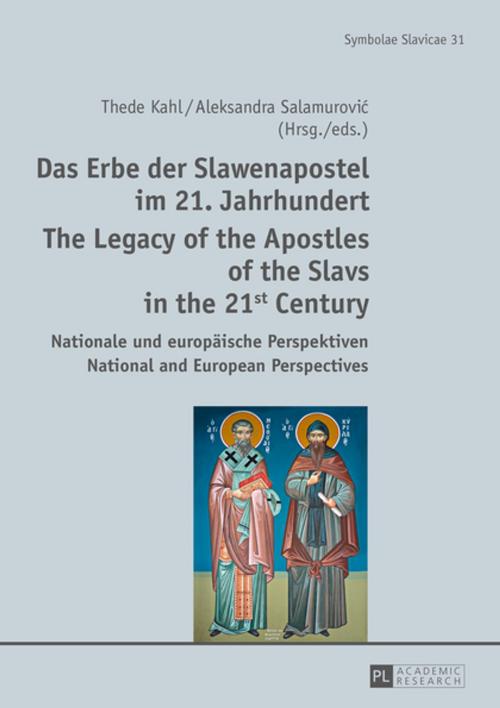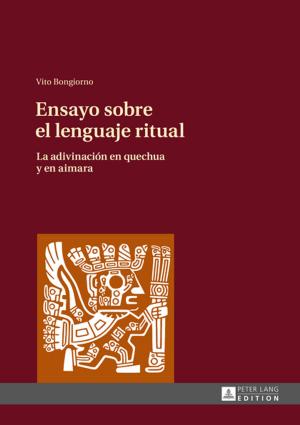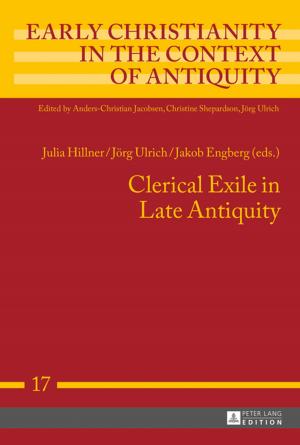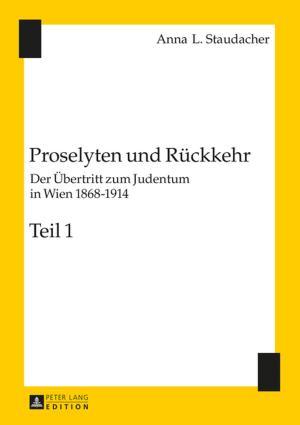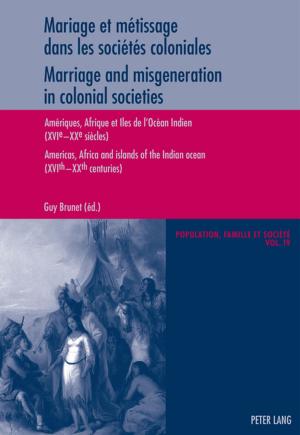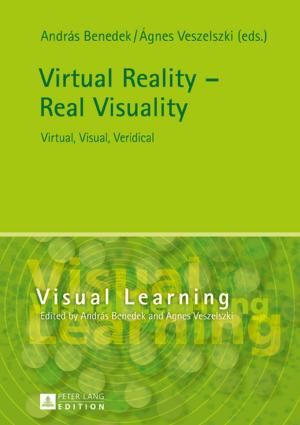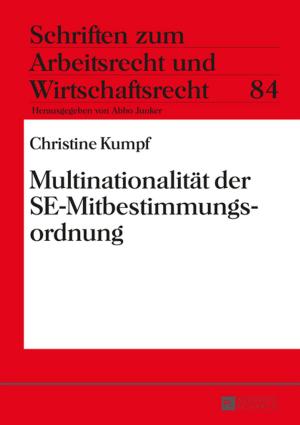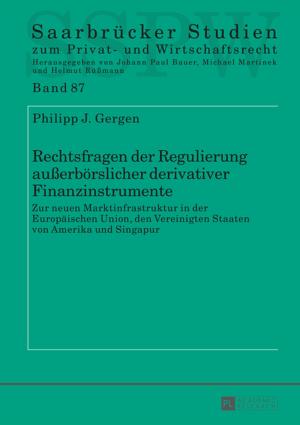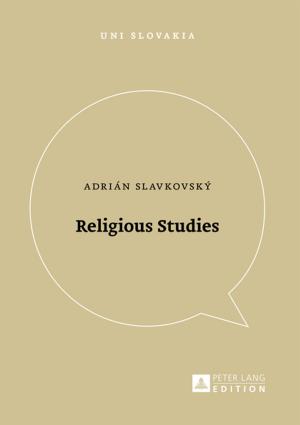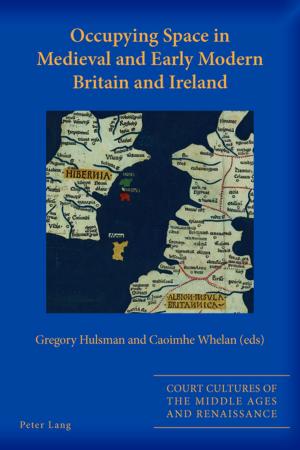Das Erbe der Slawenapostel im 21. Jahrhundert / The Legacy of the Apostles of the Slavs in the 21st Century
Nationale und europaeische Perspektiven / National and European Perspectives
Nonfiction, Reference & Language, Foreign Languages, Serbo-Croatian, Fiction & Literature, Literary Theory & Criticism, European, Eastern European, Slavic Languages| Author: | ISBN: | 9783653969627 | |
| Publisher: | Peter Lang | Publication: | February 5, 2016 |
| Imprint: | Peter Lang GmbH, Internationaler Verlag der Wissenschaften | Language: | English |
| Author: | |
| ISBN: | 9783653969627 |
| Publisher: | Peter Lang |
| Publication: | February 5, 2016 |
| Imprint: | Peter Lang GmbH, Internationaler Verlag der Wissenschaften |
| Language: | English |
Die Heiligen Kyrill und Method spielen durch ihre Bibelübersetzung und die Schaffung eines slawischen (glagolitischen) Alphabets eine herausragende Rolle für die religiöse, kulturelle und nationale Identität der Slawen. Die Beiträge dieses Bandes aus Kultur-, Literatur- und Sprachwissenschaft setzen sich mit dem geistigen Erbe der Slawenapostel im 21. Jahrhundert auseinander. Dabei stehen Erinnerungsdiskurse und die Schriftfrage im Mittelpunkt des Interesses. Die zahlreichen Funktionen ihres Erbes – Integration, Emanzipation und Abgrenzung – zeigen eine durchgehende Dynamik zwischen südslawischen, allgemein slawischen und europäischen Entwicklungslinien, die bis ins das 21. Jahrhundert wirken. Somit ist die Auseinandersetzung mit ihrem kulturellen Erbe noch lange nicht erschöpft.
The saints Cyril and Methodius play a prominent role for the religious, cultural and national aspects of Slavic identity owing to their translation of the Bible and the creation of a Slavic (Glagolitic) alphabet. The contributions to this volume, from the fields of cultural, literary and linguistic studies, discuss the spiritual legacy of the Slavic Apostles in the 21st century. The countless roles of their legacy (integration, emancipation, differentiation) demonstrate continuous dynamics between south Slavic, general Slavic and European lines of development that continue to operate in the 21st century. Thus, the debate on their cultural legacy has not yet been fully exhausted.
Die Heiligen Kyrill und Method spielen durch ihre Bibelübersetzung und die Schaffung eines slawischen (glagolitischen) Alphabets eine herausragende Rolle für die religiöse, kulturelle und nationale Identität der Slawen. Die Beiträge dieses Bandes aus Kultur-, Literatur- und Sprachwissenschaft setzen sich mit dem geistigen Erbe der Slawenapostel im 21. Jahrhundert auseinander. Dabei stehen Erinnerungsdiskurse und die Schriftfrage im Mittelpunkt des Interesses. Die zahlreichen Funktionen ihres Erbes – Integration, Emanzipation und Abgrenzung – zeigen eine durchgehende Dynamik zwischen südslawischen, allgemein slawischen und europäischen Entwicklungslinien, die bis ins das 21. Jahrhundert wirken. Somit ist die Auseinandersetzung mit ihrem kulturellen Erbe noch lange nicht erschöpft.
The saints Cyril and Methodius play a prominent role for the religious, cultural and national aspects of Slavic identity owing to their translation of the Bible and the creation of a Slavic (Glagolitic) alphabet. The contributions to this volume, from the fields of cultural, literary and linguistic studies, discuss the spiritual legacy of the Slavic Apostles in the 21st century. The countless roles of their legacy (integration, emancipation, differentiation) demonstrate continuous dynamics between south Slavic, general Slavic and European lines of development that continue to operate in the 21st century. Thus, the debate on their cultural legacy has not yet been fully exhausted.
